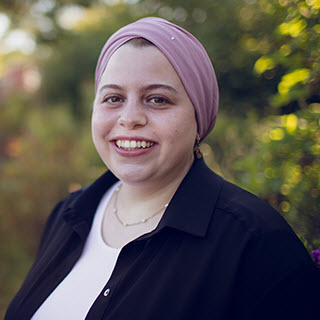
“Was I too picky? Will I ever get married?”
These are the questions I hear so often from my Muslim female clients. As a Muslim therapist, marriage and being insecure about being single comes up a lot in sessions with my female clients. Due to the way our religion views premarital relations- marriage is really encouraged to be able to have a partnership. But, in my experience, cultural and culturally religious expectations complicate the marriage process and often times it becomes a way to put down women. This also happens with men, but my focus for today will be on the female experience in this process.
Not being married after a certain age brings about a ton of insecurities. The insecurities and fears start to pour in as soon as the woman is of a marriageable age, if not earlier. Once they feel ready to be married, the barrage of negative thoughts begin: “What if he’s the ONE but I don’t want him? What if I’m saying no to who God intended for me? What if we’re supposed to be misaligned but that’s God’s test or challenge for me? What if I say no too many times? What if he’s the best I’ll get?” And after a couple of years of being single, new insecurities come in slowly and persistently: “Am I not pretty enough? Am I too fat/dark/skinny/light/loud/quiet/tall/educated? Was I too picky? Will I ever get married?”
And a grief begins to settle in. The grief settles in because as women, we’re conditioned to associate our happiness, our safety and our worth based on our marriageability. And unconsciously, some stop living their lives in order to be marriageable. I’ve had conversations with parents and daughters about fearing to pursue additional education. The fear is that the more educated a woman, the more unlikely she’ll get married. There is also more effort on the part of the family to make sure that the woman is the ideal body to be attractive to suitors. Or the woman is limited in what she does because she is not married, which could look like limitations on the jobs she takes, the way she expresses herself, or any travel. She could also be limited in who she’s allowed to spend time with or what activities she’s allowed to partake in. Ultimately sending the message of: ‘you need to change yourself to be accepted by a man. And only then can you live the life you want.’ It can be quite a dehumanizing experience to associate freedom of choice on the status of your partnership. But it’s so normalized in our societies that we often don’t see the process as dehumanizing.
What we will notice are the affects of this process when we start recognizing how debilitating the insecurities and self-doubt become. Women will begin to be more insecure, constantly battling with the feeling of not being good enough. They feel faulty and overanalyze themselves for any flaws they might be missing. They feel like they are failing themselves and their families. They feel like that are creating unnecessary misery, and they feel stuck in their lives. Marriage, or not being married, begins to feel like their only identity.
To be able to truly shift our perspective and ease the pressures women feel with marriage, it’s important to understand why there is so much pressure. In the way we construct our communities, not being married as a woman is a very valid concern.
Muslims generally live by traditional Eastern culture values while living in a Western culture. By traditional Eastern values, women can expect to be financially taken care of by their spouse or their families. In Western culture however, it’s hard to get by without a two salary household and basic healthcare needs are attached to either a job or a spouse so having a career and financial knowledge is important. But more often than not, women are not taught how to be financially capable because we depend on the idea that that is the man’s responsibility. So, if a woman is not encouraged to be fiscally responsible, to pursue an education and career, to be financially independent, then what happens when she never gets married? How does she get by in our society? And instead a dynamic is created where she actually needs to get married to be financially safe and no matter the consequences, she needs to stay married.
From a communal cultural perspective, it’s also challenging because full independency is not granted to the woman until she’s married. The degree of this changes depending on the familial culture. But the amount of respect, autonomy, and authority a woman is given changes depending on if she is single or married. Thus continually infantilizing grown women and sending the message that they’re not enough without a man.
We also don’t encourage other strong relationships other than the spousal relationship. This inherently keeps the woman’s ability to be truly emotionally vulnerable and connected reserved to a potential spousal relationship. This is unfair to both the woman and her future partner. Emotional fulfillment can never come from only one person. It needs to come from many people in a community.
The challenge with only encouraging women to be vulnerable, financially safe and socially worthy in relationships is that we are actively making sure they remain dependent on men for safety. We do not have full control on whether the marriage will be a good one, whether a marriage will happen and whether the marriage will last. And so, a woman’s emotional safety, financial safety, and worth become connected to a relationship that could end in divorce, sickness or death.
It’s important to note that I’m not giving an opinion on whether people should or should not get married. Marriage is special and beautiful in it’s own way. I am saying that the way in which we attach a woman’s safety to marriage is unhealthy.
So, for all my single readers- what does it look like to believe that you’re worth more than your marriageability?
It means to constantly be learning and celebrating yourself every step of the way. Your marriage is only a part of you, it is not, and should never be, you. It is not a marker of success, of happiness, of God’s favor, and it should not be a marker of physical, financial or emotional safety. Challenge your belief that you will only be okay if you are married. Make sure you’re in a position where you never need marriage but only want it.
It means that your life doesn’t need to start when you’re married. It can start before. It can start now. It means that you can work on your fitness, career, hobbies, socialization because these are things you love. Not because they make you more attractive to a potential partner. It means learning who you are and learning to really love and enjoy that person.
It means to learn to trust yourself to take care of yourself and to learn all the things that you need to trust yourself to do so. To learn how to have friendships that are loving and supportive. To have relationships that make you feel loved and fulfilled. To learn how to resolve conflict with your relationships. To work on healing yourself. To recognize that the first and foremost person that is responsible for your health and happiness is you- and that that is a very important and fulfilling responsibility.

